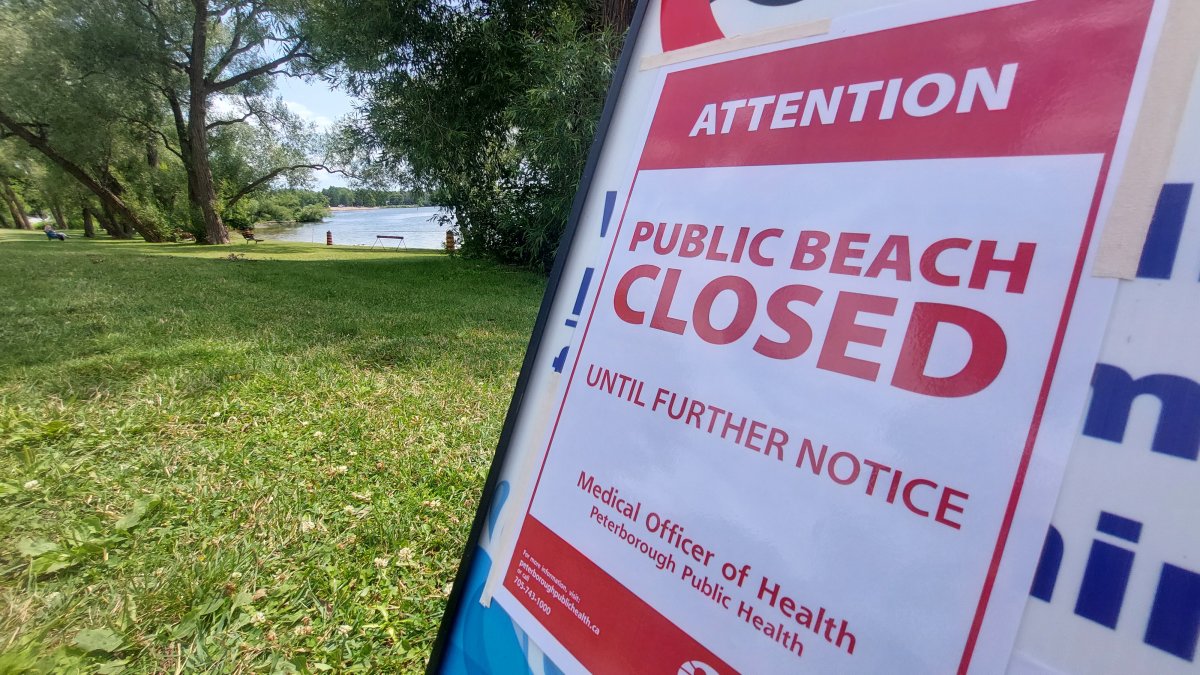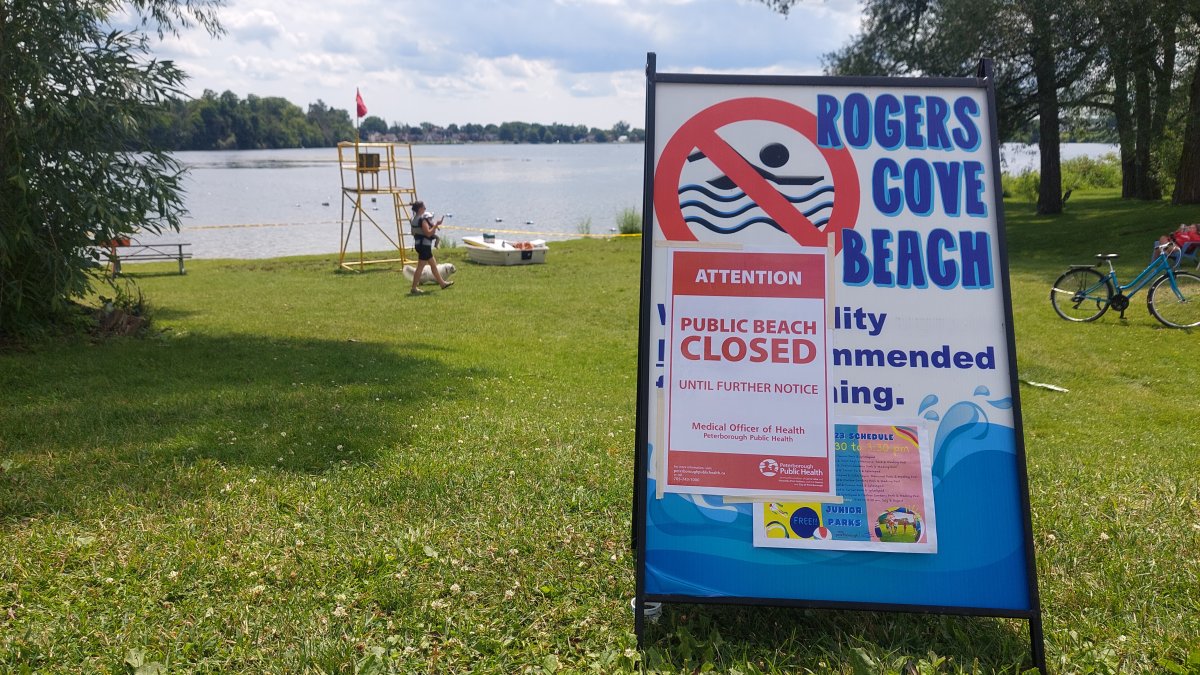Two Little Lake beaches in Peterborough, Ont., were closed Friday until further notice after the discovery of blue-green algae blooms.

Peterborough Public Health says the blooms were found at Beavermead Park beach at 2011 Ashburnham Dr. and the Rogers Cove beach (131 Maria St.) while staff were conducting routine beach water samples.
Julie Ingram, the health unit’s manager of environmental health, says the Ministry of Environment, Conservation and Parks’ Spills Action Centre has been contacted.
“We have received confirmation that the MECP will sample the blooms today,” she said. “In addition, we have notified the City of Peterborough, who are supporting the beach closures.”
Blue-green algae are a type of bacteria, called cyanobacteria, known for rapidly reproducing and collecting to form large, highly visible blooms throughout the water column, on the surface of water as a scum, or on the lake bottom as a mat. Some species of cyanobacteria can also release poisons, called cyanobacterial toxins, when the cells that make up the bloom rupture or die.
Currently, there is no known risk to the City of Peterborough’s municipal drinking water supply.
The risk to humans is primarily from drinking water that has been contaminated with toxins from a dense, harmful algae bloom. Long-term consumption of water containing high levels of cyanobacterial toxins may cause neurological or liver problems.
While the blooms have not yet been confirmed as harmful, Peterborough Public Health has temporarily closed the beaches for swimming as a precaution, while awaiting further testing.
Many forms of blue-green algae are harmless, but some types produce toxins that can be hazardous for both people and animals, the health unit notes.
Exposure to toxins through activities like drinking, swimming and bathing can cause various symptoms including itchy, irritated eyes and skin; rash; headache; fever; diarrhea; abdominal pain; nausea; and vomiting. Some individuals may have no reaction. Pets should not be allowed to enter water with suspected or confirmed harmful algae blooms as they may consume large amounts of contaminated water, resulting in sickness or death.
To report a suspected blue-green algae bloom, residents are advised to contact MECP Spills Action Centre at 1-800-268-6060.
For more information on blue-green algae, and precautions, visit the health unit’s webpage.




Comments